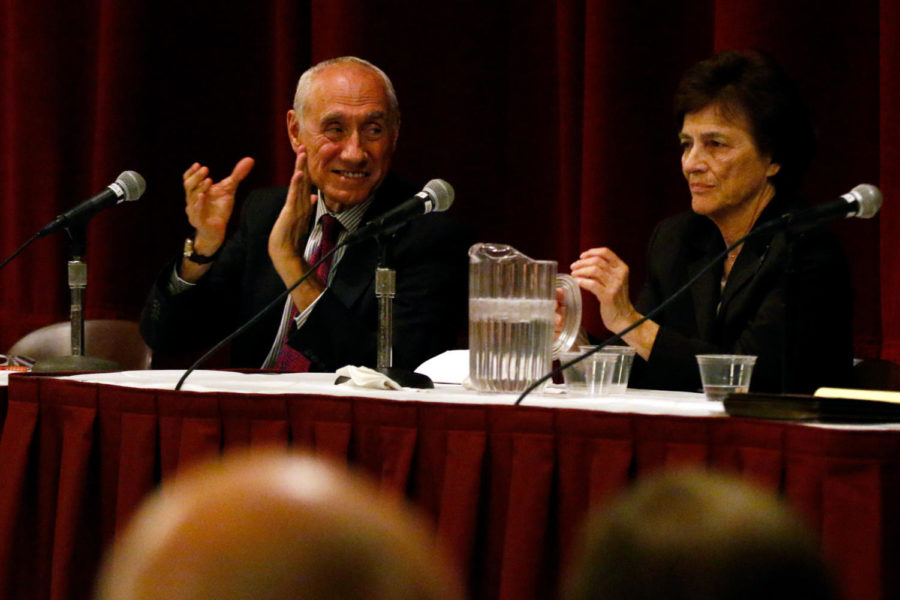Iowa State lecturer and former Iowa congressman to talk impeachment
Hayley Hochstetler/ Iowa State Daily
Former U.S. Reps. Edward Mezvinsky, left, who represented Iowa’s 1st District, and Elizabeth Holtzman, of New York, discuss the results and lessons learned from the Watergate scandal.
November 13, 2019
A discussion on impeachment is set to take place Thursday at 8:15 p.m. in the Great Hall of the Memorial Union.
The discussion, titled “Impeachments Then and Now: How the Inquiries Evolved from Nixon to Clinton to Trump,” will be moderated by Karen Kedrowski, director of the Carrie Chapman Catt Center for Women and Politics, with panelists Dirk Deam, associate teaching professor of political science, and former Rep. Ed Mezvinsky, D-Iowa.
Mezvinsky sat on the House Judiciary Committee that voted to impeach President Nixon, and Deam is an attorney. Deam said, due to the rarity of impeachments, it is important to have discussions like these.
Only two presidents have been impeached in American history: Andrew Johnson and Bill Clinton.
“The specific answer in [this] case is this is a fairly unique impeachment process in that it goes through some really core concepts of American government and what kind of a government and republic we expect to be,” Deam said. “I am not sure people are generally perceiving that.”
This impeachment inquiry goes to the basic fundamentals of corruption, and the founders of the United States designed impeachment for situations like this, Deam said.
“The other impeachments had elements of that but not quite as brightly as this one,” Deam said. “This is a profoundly important public event.”
This should not be a battle between parties, but rather a matter of whether public officials are above the law, Deam said
“We live in a constitutional republic where the only rule that [everyone] has to follow is the rule of law, and if we really believe that the rule of law is defined by what party you are a member of and whether […] you support a particular person then we really don’t have any rule of law anymore and we really don’t have a republic anymore,” Deam said “If we don’t treat it that seriously we run the risk of literally losing our republic.”
Deam said he hopes the panel impresses the importance of impeachment and the impact it has on the country and future.
“It is so easy, especially for young people, to dismiss all of this as silly partisan bickering, and it is so much more profound than that,” Deam said. “The stakes are so high, and if we can impress that upon people that will be successful by itself.”
This lecture is co-sponsored by the Committee on Lectures, funded by Student Government, and the National Affairs Series, a series dedicated to speakers focused on topics of national interest. This year’s topic is “Building a Better Democracy.”







